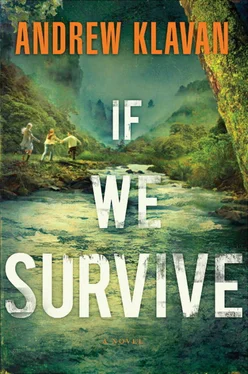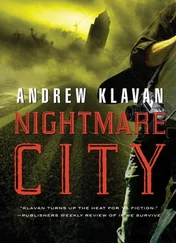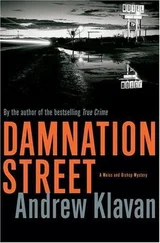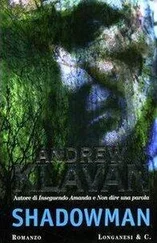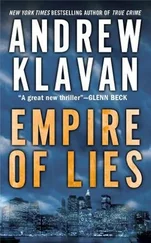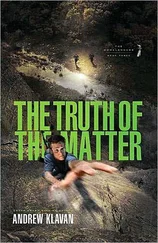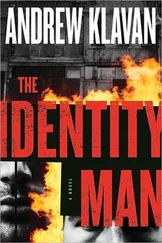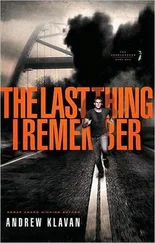“Something about the helicopters,” she said.
“I don’t think they saw us…”
“That’s what Paolo’s saying,” said Meredith, “but Palmer seems to disagree.” She shuffled herself a little closer to the front of the pickup. Listened through the dusty glass. “Palmer says it’s too dangerous for Paolo to stay with us now.”
“But what will we do without the truck?” asked Nicki. I thought she was still asleep, but all at once she seemed to be totally awake.
The truck continued moving—but the front passenger door—Palmer’s door—suddenly came open. We heard Paolo shout and the pickup bucked again, stopping and starting. It was still moving forward when Palmer jumped out.
Palmer hit the ground and stumbled a few steps before he could bring himself to a halt. The truck slowed, then jerked forward with a squeal, then bucked again, then stopped.
The passenger door was still ajar and Paolo was leaning over in the front seat shouting at Palmer in Spanish. Palmer ignored him. He came back to the bed where we were and said sharply:
“Get down. We’re going on foot from here.”
We didn’t hesitate. I pushed open the tailgate and climbed down, my rifle strapped over my shoulder. Meredith and Jim and Nicki tumbled out right behind me.
Paolo was still shouting at Palmer through the truck’s open door. Palmer rudely slapped the door shut, making Paolo’s words difficult to hear.
“What’s happening?” I asked.
“Crazy Indian wants to get himself killed,” said Palmer. “But too bad, we’re not gonna let him.”
“Is this about the helicopters?” asked Meredith.
“If they spotted us, there’ll be rebel gunmen here any minute. We gotta make a run for it, see if we can reach the airport before they find us.”
Paolo hammered with his fist on the truck window.
“Get out of here!” Palmer shouted at him. Then he muttered to himself, “If the rebels find him here, they’ll kill him. Then they’ll go up to his village and kill his wife and daughter and anyone else they don’t like the look of. Just like they did in Santiago.”
“Well, what’ll they do if they find us?” Nicki asked.
“Pretty much the same thing,” said Palmer. “So let’s get moving. The airfield’s only about a mile and a half from here. With luck, we might just get there before the rebels show up.”
Paolo was sticking his whole torso out of the driver’s window now, half standing up and yelling at us across the top of the truck—or yelling at Palmer, anyway. Palmer just started walking down the road, the Spanish tirade bouncing off his back.
After a couple of steps, Palmer turned as he walked and shouted at Paolo, “I said get outta here, you crazy Indian! Or, so help me, I’ll shoot you myself.”
Throwing up his hand in frustration, Paolo angrily dropped back into the pickup. The truck backed up quickly, spewing dust from under its tires. Then it turned around and bounded back along the road the way we had come.
I shrugged and was about to follow after Palmer. But I saw Meredith was standing still in the road, watching Paolo go. Palmer, glancing over his shoulder, saw her too.
“Hurry it up,” he said gruffly. “The rebels could be here soon.”
“We didn’t even thank him,” said Meredith.
Palmer gave an angry laugh and kept walking.
Jim and Nicki went after him, but I stayed with Meredith another moment.
“You know that whole thing about Paolo being a crazy Indian and if he didn’t get out of here, Palmer would shoot him?” I said to her.
“Yes,” she murmured, still looking with concern after the receding pickup.
“I think that was Palmer’s way of thanking him. It’s a guy thing.”
Meredith blinked. “Oh,” she said after a moment. “Right. Right.”
And finally, reluctantly, she started down the road, and I went after her.
It was easier walking on a road in the open than through the jungle, so Palmer kept us moving at a fast pace. The sky grew lighter as we walked. The sun rose. The cloudless blue stretched wide around us. The heat grew more intense and the air grew thicker. Pretty soon we were almost as sweaty and breathless as we had been when we were fighting our way through the trees.
But the jungle had fallen away behind us completely. In its place there were green valleys and a horizon ringed with hills on every side.
After a short while trudging uphill, we came to the top of a rise. Palmer, in the lead, waited there for the rest of us to catch up.
I crested the hill and saw the city. Santa Maria. The capital of the country. Its buildings rose blue-white out of the green scenery: impressive skyscrapers, churches, office buildings and open parks and playing fields. We had passed through the city when we first arrived, and I knew it looked a lot better from this distance than it did up close. When you were actually there, you could see that most of the buildings were old and worn and dirty, the streets full of litter, a lot of people homeless and poor.
But to me, from up here, it looked great: the end of our journey, maybe a way home. Everything seemed to lift up inside me at the sight of it.
“There’s the airfield,” said Palmer.
He pointed and I strained my eyes. But all I saw were stretches of empty green and then houses gathering and growing more dense until they blended with the rising capital.
“If we can make that, I’ll have us out of here in an hour,” Palmer said.
Nicki let out a little exclamation of joy. “That would be so, so, and did I mention so awesome.”
Palmer made a little come on gesture with his head and started down the hill.
This time, instead of bringing up the rear, I walked alongside him. He didn’t seem to notice me. He just kept his eyes moving, scanning the empty skies and the open road.
“No sign of them yet,” I said, trying to make conversation. “Maybe the choppers didn’t see us.”
“Don’t get your hopes up.”
“What do we do if they do show up?” I asked. “Will we have to fight again?”
Palmer seemed to consider it. He tilted his head back and forth a little. “Depends on the setup.”
I walked another few steps in silence, unsure if I should say anything more. Then the words just sort of came out of me on their own.
“I sure hope I don’t have to shoot anybody else,” I said.
Palmer sent me a mocking glance—just a quick one before he went back to scanning the skies and the road and our surroundings.
“You didn’t like that, huh?” he asked.
“Shooting someone? Let’s just say it isn’t as much fun in real life as it is in video games.”
He laughed once. “No. I guess not.”
I didn’t want to look at him so I just sort of did what he was doing: scanned the hills and fields ahead. “It kind of keeps bothering me, you know,” I told him. Palmer didn’t say anything, but somehow I felt I had to keep talking anyway. “I keep thinking about… I don’t know. Maybe the guy I shot had kids or something. Or maybe he had, like, a mom who loved him.”
“Well,” said Palmer, “most people do have a mom, it turns out.”
“Yeah. Yeah, that’s what I was thinking. I mean, maybe he didn’t even want to be in this stupid revolution.”
“I wouldn’t be surprised.”
We continued to move quickly down the road to the valley below. I kept my eyes on the blue-and-silver city growing more and more clear on the horizon. “I was thinking about Pastor Ron, you know,” I said. “He gave a sermon once about how you shouldn’t answer evil with evil, you should answer it with good.”
“Mm,” murmured Palmer, squinting up into the bright sky. “Turn the other cheek, you mean.”
Читать дальше
